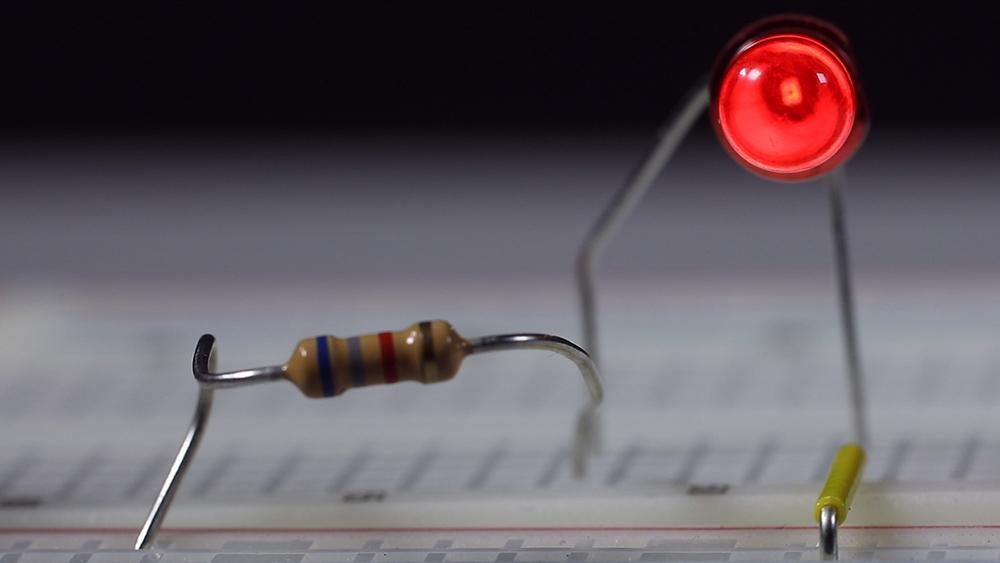When it comes to working with Light Emitting Diodes (LEDs), understanding the role of resistors is essential. LEDs are incredibly efficient and versatile sources of light, but they require precise control to function optimally and prevent damage. In this article, we'll delve into the significance of resistors in LED circuits and address common questions regarding their usage.

What resistor should I use for an LED?
Selecting the appropriate resistor for an LED depends on several factors, including the LED's forward voltage and the desired operating current. To determine the correct resistor value, you can use Ohm's Law (V = IR), where V is the voltage across the resistor, I is the desired current, and R is the resistance.
For example, if you have a 5V power supply and a 2V LED with a recommended operating current of 20mA (0.02A), the voltage across the resistor would be 3V (5V - 2V). Using Ohm's Law, you can calculate the resistance needed to achieve the desired current flow. Helpful resource: https://www.circuitbread.com/ee-faq/how-do-i-choose-the-correct-resistor-for-my-led
Can you run an LED without a resistor?
While LEDs do not require resistors to function, they do need current regulation to prevent excessive current flow, which can lead to overheating and failure. Therefore, it is highly recommended to use a resistor in series with an LED to control the current passing through it. Helpful resource: https://www.quora.com/Is-it-possible-to-use-led-without-resistor-and-not-burn
Do I need a resistor for a 12V LED?
Yes, even for 12V LEDs, a resistor is typically required to regulate the current flow and prevent damage to the LED. The resistor value will depend on the LED's forward voltage and the desired operating current, as explained earlier. Helpful resource: https://www.quora.com/Does-a-12v-LED-need-a-resistor
Can I use a 1K resistor for an LED?
The value of the resistor depends on the specific requirements of the LED circuit. A 1K resistor may be suitable for certain LED setups, but it's essential to calculate the resistor value based on the LED's specifications and the power supply voltage to ensure proper current regulation. Helpful resource: https://sites.google.com/site/markgurries/dcc-welcome-page/part-sources-info/leds/resistors-for-ledsbulbs
What happens if you use the wrong resistor with an LED?
Using the wrong resistor with an LED can have detrimental effects on both the LED and the overall circuit. If the resistor value is too high, it may limit the current to the LED, resulting in dim or non-functional lighting. Conversely, if the resistor value is too low, it can cause excessive current flow, leading to overheating and potentially damaging the LED. Helpful resource: https://electronics.stackexchange.com/questions/227977/are-there-side-effects-to-using-too-much-resistance-for-an-led
In conclusion, resistors play a crucial role in LED circuits by regulating current flow and ensuring the proper operation of the LED. By understanding the principles behind resistor selection and application, you can effectively incorporate LEDs into your projects while maximizing their performance and longevity.
Facts Checked by Hugh Johnson
Hugh Johnson stands tall in the realms of both the chip industry and the electronic parts industry, earning acclaim as an esteemed expert in these fields. With an extensive background steeped in semiconductor technology, Hugh's expertise transcends chip design and fabrication, encompassing a profound understanding of electronic components' intricate functionalities and applications. His seasoned knowledge spans diverse facets, from microchip architecture and fabrication techniques to the broader landscape of electronic parts utilized across industries.









